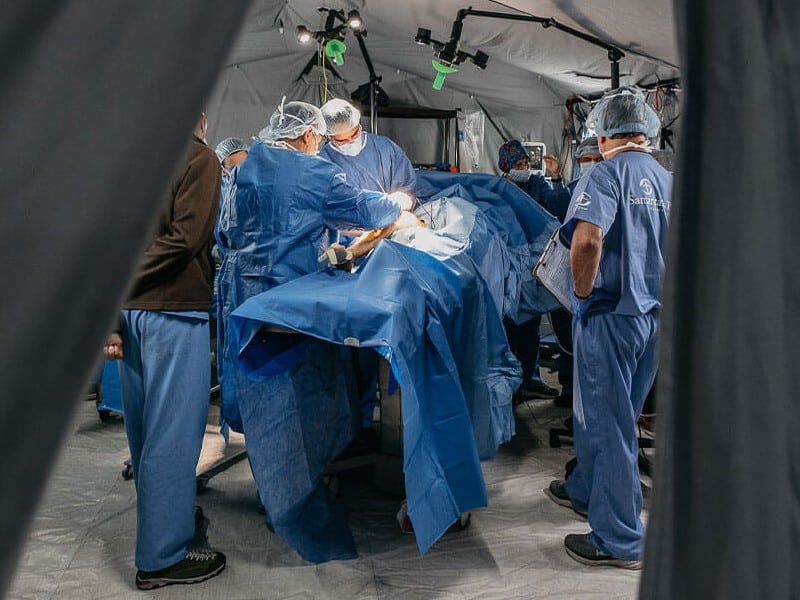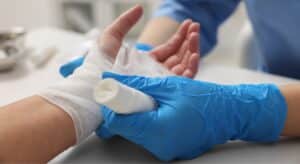For nearly 100 years, Methodist Health System has been providing compassionate, quality healthcare to the patients it serves. And for a quarter of that century, Faith Community Nursing has worked hand in hand to heal those communities — body, mind, and spirit.
The outreach program began in 1999 with a mission to meet Methodist’s covenant agreements with its faith communities, a goal it could only accomplish by collaborating with nurses embedded within dozens of churches across the Metroplex.
“The focus of the Faith Community Nurse includes a whole-person approach toward health and wellness: body, mind, and spirit,” says Debbie Seider, manager of Faith Community Nursing.
Many people of faith attend church far more regularly than they see a doctor for routine healthcare. That’s the rock that Faith Community Nursing built its foundation on decades ago, says the Rev. Elias Lopez, pastor of Iglesia de Dios Filadefia in Grand Prairie.
“I worked in the hospital and saw how many in our community felt powerless when faced with healthcare decisions,” says Lopez, who once served as director of Pastoral Care for Methodist Health System. “We need to empower ourselves through faith to take control of our health.”
In other words, “if the church is healthy, then the community will be healthy,” says the Rev. Caesar Rentie, vice president of Pastoral Services for Methodist. “This is a way to bring that collaboration between healthcare and churches together so that the church becomes a model of wellness and health.”

Vaccine clinics and health fairs ensure resources are available to many faith communities.
HEALING THE BODY
Navigating healthcare misconceptions is a challenge Methodist Health System overcomes every day while running the only acute-care hospitals that serve the communities south of the Trinity River. The nurses who make up Faith Community Nursing embody the secret to that success.
Brenda Hickman, the Faith Community Nurse stationed at Oak Cliff Bible Fellowship, battles a deep distrust of healthcare among the African-American elders in her congregation. Their skepticism dates back to the Tuskegee experiments.
“It helps that we have a big ministry that can talk to them, guide them, and give them some level of trust,” says Hickman, who serves the 12,000-member church just three miles from Methodist Charlton Medical Center.
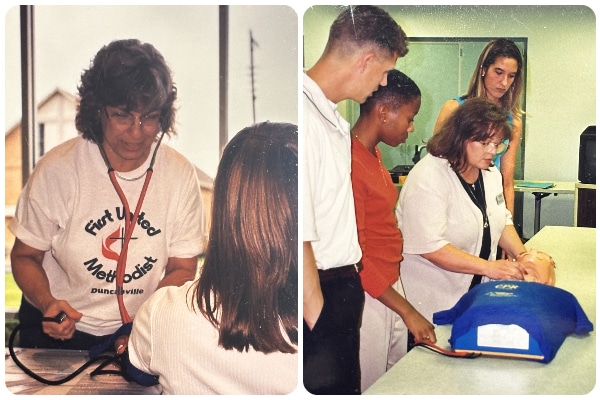
Blood pressure clinics and CPR classes tend to the health of congregations.
It also helps when that message comes from a trusted source. Many of these nurses grew up members of the very congregations they now serve. In one such case, a mammogram made possible by Methodist’s mobile mammography unit detected a church member’s early signs of cancer.
“She didn’t have insurance and would not have gotten a regular checkup,” Hickman says. “The mammogram was a great benefit for her.”
Magaly Barrientos, who grew up in Iglesia de Dios Filadefia, has returned to serve her community. She helps bridge the gap between healthcare services and the Spanish-speaking population.
“I took the role of Faith Community Nurse because I want to be able to help my brothers and sisters,” Barrientos says. “I want them to be informed on what we can do to maintain our health.”
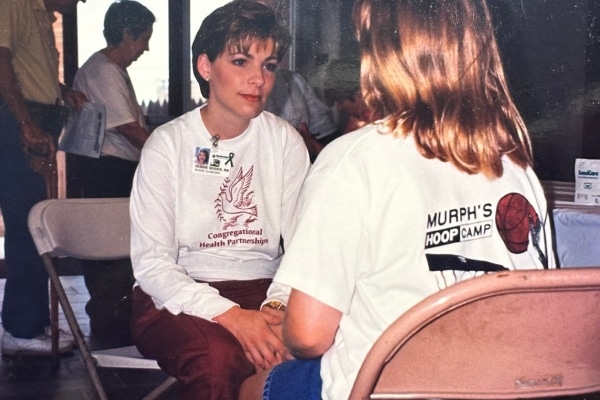
Physical health depends on a healthy mind, and the initiative puts an emphasis on mental health.
MENDING THE MIND
Caring for the mental health of these communities has become a major emphasis of the program. This is especially true since the pandemic caused so much stress and took a disproportionate toll on the marginalized communities that Methodist serves.
While working as a hospital chaplain, Lopez routinely saw patients struggle to stay healthy because of their reluctance to seek help, especially behavioral healthcare.
“Mental health is really misunderstood. We need to give it more attention and care,” says Lopez, whose church is a few miles west of downtown Grand Prairie, just off the Bush Turnpike. “Seeking care is not a sign of weakness.”
Overcoming language barriers is another way Faith Community Nursing cares for faith communities, especially among Latino populations.
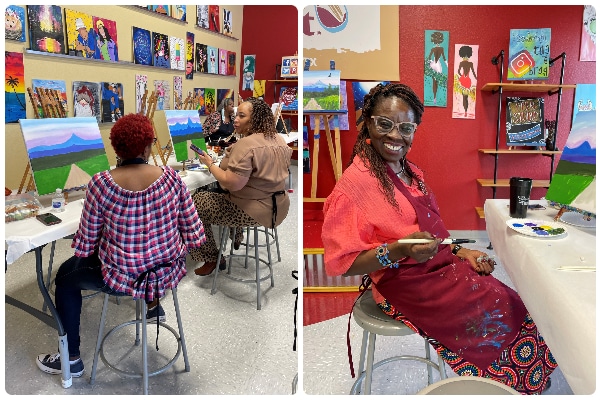
Art classes allow the members of these faith communities to unwind and take comfort in fellowship.
“In July, we had our first bilingual mental health first-aid class,” says Glen Alejandro, MSN, RN, CNL, FCN, who serves as the Faith Community Nurse for St. Luke’s Catholic Church in Irving. “It’s through Faith Community Nursing that we were able to access those services and provide them to the community.”
At First United Methodist Church Duncanville, Pastor Abril Goforth and her team have completed several initiatives with Faith Community Nursing. These initiatives include a 12-week course about the brain and aging. Another course on medication led to an important discovery.
“One person took her husband to the doctor. There, he received a dementia-related diagnosis and the proper medication,” Goforth says. “I care deeply about the people I serve, but I’m not a medical professional. Receiving guidance from people who understand healthcare is a godsend.”

Museum visits and grief counseling help tend to the spiritual health of our communities.
NURTURING THE SPIRIT
As might be expected for a faith-based healthcare initiative, restoring the spirit of the communities Methodist serves is every bit as important as mental and physical health.
That outreach could manifest in a group visit to a local museum or a painting class where participants nurture their creative spirit. It could also mean supporting a parishioner during their darkest days, whether offering guidance about hospice care or grief counseling after the loss of a loved one.
“This year, we had an end-of-life conference where we talked to the community about all those choices that are so hard to talk about,” says Renita Andrews, the Faith Community Nurse at Galilee Missionary Baptist Church in east Oak Cliff. “That was really a tremendous help for our congregation.”
On another occasion, Galilee MBC suffered the loss of several members in close succession. In response, Andrews reached out to Faith Community Nursing to organize a Day of Comfort and Care.
“We were just overwhelmed with grief, our church had gone through such a loss,” Andrews said. “Speakers and a grief counselor came in. We served a lunch of comfort food like grilled cheese sandwiches and ice cream.”
There was also a surprise guest who showed up in need: the church’s pastor at the time, the Rev. L.R. Davis. He wasn’t there to minister, however, but to seek spiritual renewal, as well.
“That’s one of those situations where you think the program is for one thing and you realize it’s a great service to the overall church,” she said. “What Methodist has provided for the community has been a tremendous blessing.”


